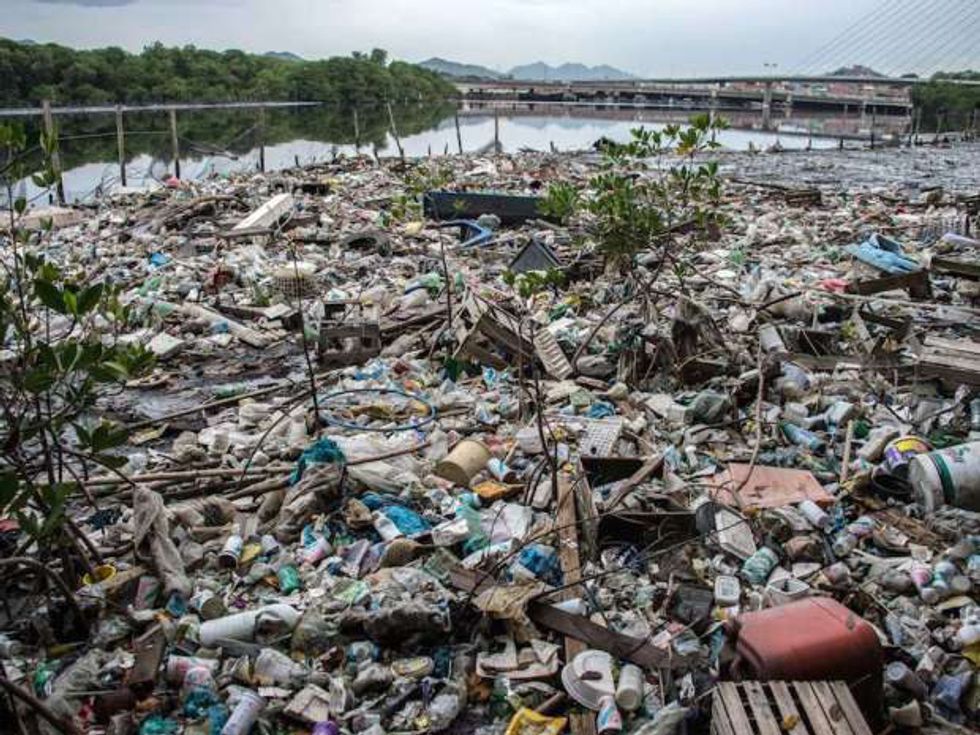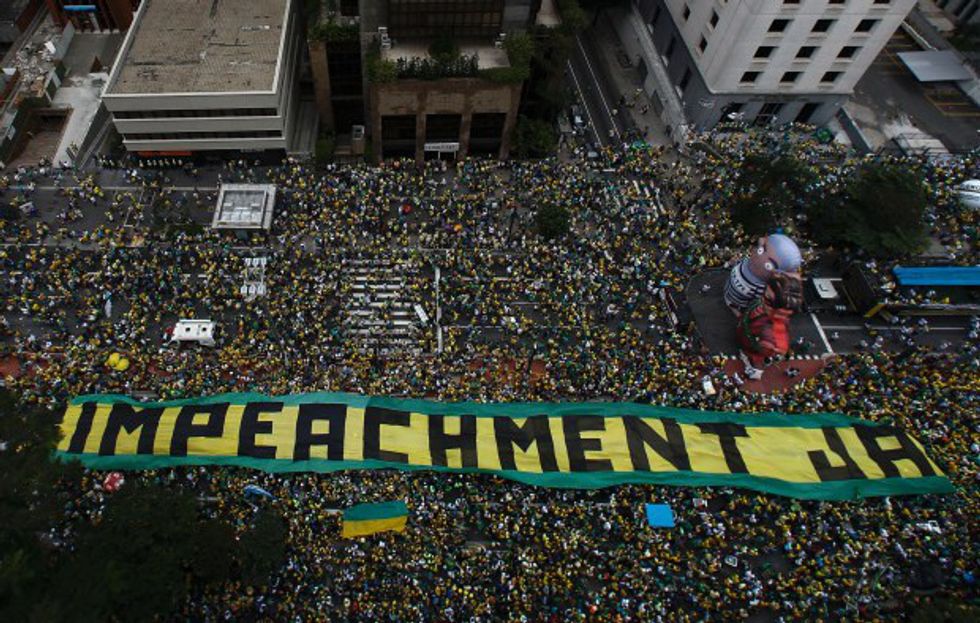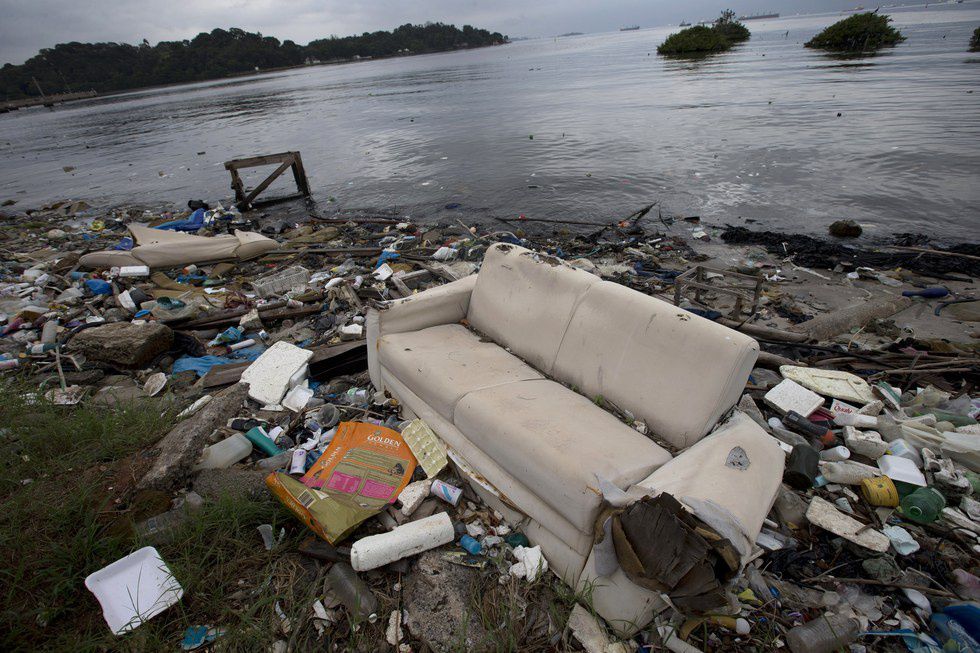Since 776 B.C., the Olympic Games have been the greatest display of patriotism, athleticism and innovation. Despite each nation possessing their own pride and prejudices, the Olympics allow us to unite as one and forget our differences for a month. The longevity of the Olympics is in part due to host countries looking for ways to up the ante and strive for enhancing the splendor of the ceremonies, stadiums and spectacle every four years. But will Rio's fatuous "go for broke" ante lead to a lackluster month of games come August? Here are seven reasons why Rio is shaping up to take gold for the biggest blunder in modern Olympic Games history.
1. Zika virus
Mosquitoes with the Zika virus are proliferating in Brazil, rendering Rio a likely place to contract the disease. While the symptoms for those who are affected are not too pronounced, the ailment becomes malignant for newborns who are infected during pregnancy. This has evoked so much concern that athletes are freezing their sperm in the event that they contract the disease. Furthermore, the thousands of staff members, athletes and spectators are told not to reproduce for up to three years after the games to ensure they don't test positive for Zika.
2. Lackluster turnout

Despite golf making its first return to the Olympics since 1904, seven of the world's leading golfers will not be attending. This list included the likes of Rory McIlroy, Adam Scott and Jason Gray. The NBA won't be sending arguably their two best players - Steph Curry and Lebron James. Rivaldo, a former Olympic Brazil soccer player, warned people to "stay in their country of origin....because here you will be running the risk of your life."
Many more athletes are contemplating not going, while others, such as the South Korean Olympic team (above), are looking for protection methods as is seen in their "Zika resistant uniforms."
3. Public safety
By public safety, I mean the salient lack thereof. Police officers are making the notion that they will not be able to protect tourists - let alone their own countrymen - a colloquial message. Just last week peace officers of Rio protested outside of a local airport with signs saying "Welcome to Hell...Police and firefighters don't get paid, whoever comes to Rio de Janeiro will not be safe." This strike is no joke either. Rio's police officers have not been paid in months, and their economic fiasco means they likely won't be paid any time soon.
According to the Washington post, the homicide rate in Rio is up 15 percent through the first four months of 2016, while street robbery is up 24 percent. There is no telling what an influx of cash-laden tourists will do to these numbers.
4. Juma the jaguar

Juma, a 17-year-old female jaguar kept in captivity at a zoo in Rio, was in an Olympic photoshoot where she was to serve as the mascot for the local infantry battalion. After the pictures were taken, she returned to her usual confinement at the local zoo. However, negligent zoo-keeping led to her cage being left open, coaxing her to leave her enclosure and mosey throughout the zoo. Though there was no apparent danger present, a soldier shot the jaguar dead, sparking mass controversy. I find this to be a rather uncanny metaphor: the animal that was supposed to be a mascot for Rio - representing poise and strength - was shot dead in cold blood due to malpractice.
5. Waterborne "super bacteria"
The Zika virus marks one by land, and the ominous discovery of the waterborne, drug-resistant "super bacteria" two by sea. Just as Paul Revere wouldn't have been ready to see three lanterns in the steeple, Rio de Janeiro is not sure how to even start addressing this new problem.
In what appears to have been catalyzed by hospital sewage pouring into waterways, here are some not so fun "superbacteria" facts that are affecting some of Rio's most populous beaches:
--One in two people who contract the disease die from it.
--This "super bacteria" is resistant to antibiotics, and has been found to thrive when doctors try to combat it.
--Olympic athletes are just as exposed to the disease as beach goers. Swimming, sailing, rowing and canoe events will all be hosted on waterways that are teeming with the virus.
6. Incomplete stadiums

Every four years we see new and improved Olympic complexes that are stand-alone feats of wonder. However, the only wonder Rio is sparking is whether or not they are going to have a place for fans to sit and spectate.
There are still numerous stadiums yet to be completed. Seats have not been installed on their volleyball or tennis stadiums. Furthermore, the BMX stadium, whitewater facility, hockey venue and vital transportation modes are far from being completed. With Rio in a state of disarray, cleanup has been neglected, leading to polluted waterways and trash pileup that is harming disparaged communities only a half mile away from the stadium. Rio is the most ill-prepared out of any of the former Olympic hosts, and the lack of guidance and leadership for fixing this issue is only fuel to the flame.
7. Political instability

With Brazil's senate recently voting to suspend President Dilma Rousseff, the Federal government granting $850 million to Rio and declaring a state of emergency in their negligent preparedness and the whole city running amok with poor citizens made poorer through evictions and fewer jobs, Brazil is trying to mask their wound with a flashy bandage that does nothing to address the festering sore. Further exemplifying this issue, Rio's governor, Francisco Dornelles, said that the Olympics could be a big failure unless steps are taken that are not currently in place. As if that wasn't worthy of enough concern, the city of Rio's mayor, Eduardo Paes, recently came out and said that Rio is "doing a terrible, horrible job (preparing for the Olympics)....It's completely failing at its work of policing and taking care of people."





















